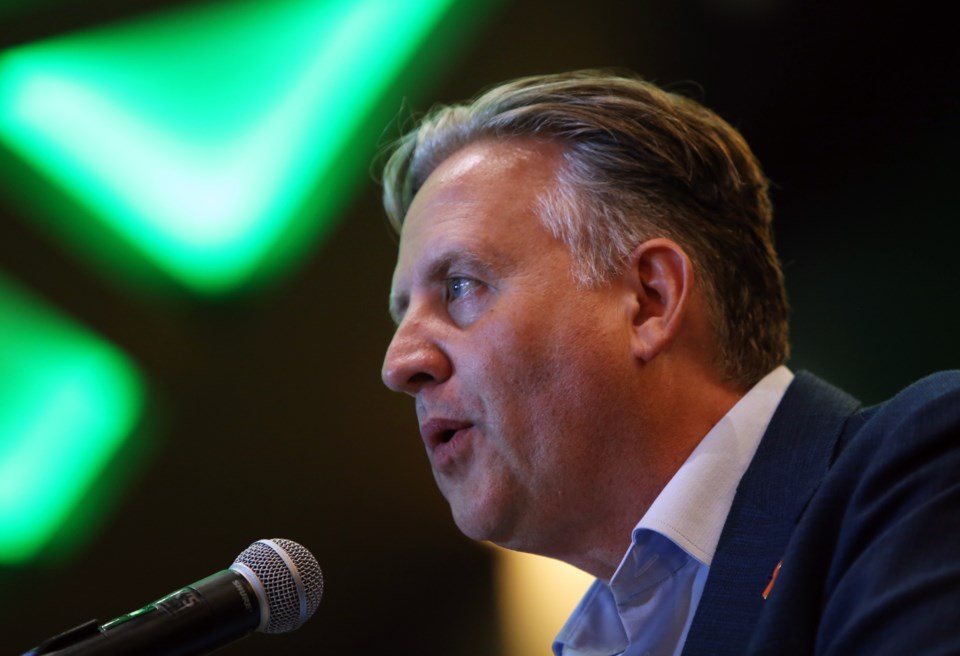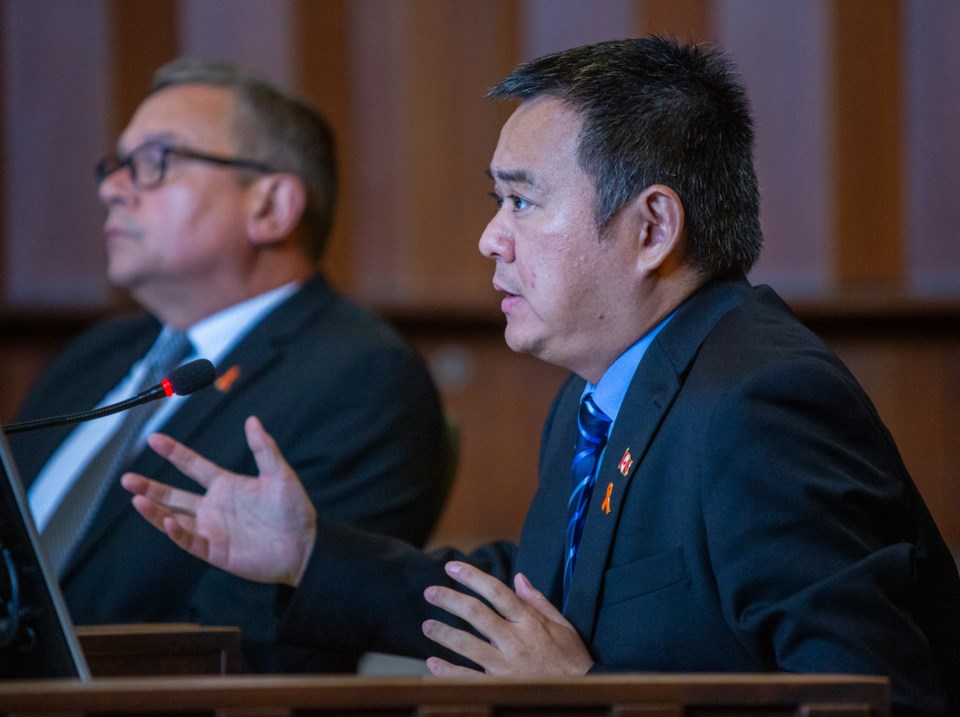ABC Vancouver Coun. Lenny Zhou says he has met twice with the Canadian Security Intelligence Service (CSIS) since being elected two years ago and plans to meet again with agency officials before the end of the year.
Zhou, who was elected in October 2022, said CSIS reached out to him after the election to educate him about the agency’s concerns regarding foreign interference in ОЪС»ґ«ГЅ’s affairs.
He also met with CSIS in July at city hall.
“They are trying to meet me on a regular basis,” said Zhou, noting the meetings have been educational, with him being given tools on what to do if approached by someone suspected of being involved in foreign interference.
“I've learned a lot, and I have a very good relationship with people from CSIS.”
When asked to elaborate on “foreign interference” and which country or countries was discussed at the meetings, Zhou said “it’s from all over the place” but couldn’t release details and recommended contacting CSIS for more information.
John Townsend, a CSIS media relations officer, said in an email Thursday that he couldn’t discuss the specifics of the agency’s interactions with organizations or individuals, including Zhou.
But Townsend acknowledged CSIS routinely engages with government, the private sector, various organizations and public officials to discuss potential threats to the security of ОЪС»ґ«ГЅ and to provide briefings regarding specific threats.
“This can include elected officials,” he said. “CSIS delivers these briefings in order to promote awareness of the overall threat environment, the actions of hostile threat actors, and to strengthen individual security practices in order to protect Canadians and their interests.”

'Highly unusual thing'
The response was similar to the one given to Glacier Media two years ago when asked about CSIS meeting with then-Vancouver mayor Kennedy Stewart in May 2022. At the time, Stewart said the meeting included a CSIS official with expertise on China.
“They wanted to brief me on foreign interference and the variety of forms that it could take in terms of foreign interference in both policy making and elections,” said Stewart, describing the meeting as “a highly unusual thing.”
In seven years as a member of Parliament in Ottawa, which included sitting on the justice and other committees, Stewart was never briefed by CSIS, he said.
“They walked us through eight different ways in which foreign governments can influence government policy,” he said. “They provided this information in a general way, and then with specific examples — but not from the City of Vancouver, but from other publicly known examples, both here and abroad.”
Added Stewart: “They didn't really give any reasons why they did this, and they didn't say, ‘Look out for this specific thing.’ But again, for me, it's highly unusual that they would do this. And they told me so themselves.”
'Most significant strategic threat'
CSIS has identified foreign interference in ОЪС»ґ«ГЅ and targeting of Canadians by the People’s Republic of China and the Chinese Communist Party (CCP) “as the most significant strategic threat to the security of ОЪС»ґ«ГЅ.”
“To be clear, the threat does not come from the Chinese people, but rather the CCP that is pursuing a strategy for geopolitical advantage on all fronts — economic, technological, political, and military — and using all elements of state power to carry out activities that are a direct threat to our national security and sovereignty,” CSIS spokesperson Eric Balsam told Glacier Media in March 2023.
Balsam said CSIS has previously advised Canadians that they should be aware about covert and deceptive activities conducted by foreign states, including the People's Republic of China and its ruling Chinese Communist Party, “with the intent to influence the results of democratic elections at all levels of government (federal, provincial/territorial, municipal, and Indigenous) in ОЪС»ґ«ГЅ.”
“ОЪС»ґ«ГЅ’s electoral system is strong, however, foreign interference can erode trust and threaten the integrity of our democratic institutions, political system, fundamental rights and freedoms, and ultimately, our sovereignty,” Balsam said at the time.
As indicated in CSIS’s public report on foreign interference threats to ОЪС»ґ«ГЅ’s democratic process, the agency continues to observe steady, and in some cases, increasing foreign interference activity by state actors.
, the Public Inquiry into Foreign Interference in Federal Electoral Processes and Democratic Institutions was to hold its last scheduled day of public hearings.
Led by Quebec judge Marie-Josée Hogue, the commission is examining allegations of foreign interference by China, Russia and other foreign states in the 2019 and 2021 Canadian federal elections.
'Really concerned about foreign interference'
Zhou is the only member of the 11-member Vancouver council born in China, but he said the meetings with CSIS have not been connected to his birthplace. He emphasized he was not provided any information from the agency that indicated he was being targeted by foreign actors.
“No, no, not all — just information sessions,” he said. “I'm really concerned about foreign interference. So I like to meet with them to learn more about that, and to see how I can protect myself and protect ОЪС»ґ«ГЅ. So I think it's a very positive meeting. It has nothing to do with where I was born.”
Zhou, a Canadian citizen, has been an outspoken critic of the Chinese government and supporter of pro-democracy movements. He regularly attends local events to commemorate the June 1989 Tiananmen Square Massacre in China.
“If people want to know me, and they have seen my comments on social media, they know where I stand,” said Zhou, who came to ОЪС»ґ«ГЅ in 2005 as an international student.
He left his home in Beijing to enrol in the Sauder School of Business at the University of ОЪС»ґ«ГЅ, where he successfully completed a master’s degree in operations research.
He landed a job with the Fraser Health Authority and then became manager of operations engineering at BC Children’s Hospital.
Zhou appears to be the only member of council to have met with CSIS, although Mayor Ken Sim's office said in an email that Sim met with CSIS "prior to coming into office to discuss election integrity and foreign interference. CSIS reached out to him for the meeting."
Councillors Pete Fry, Adriane Carr, Brian Montague, Rebecca Bligh, Peter Meiszner, Sarah Kirby-Yung, Mike Klassen and Lisa Dominato told Glacier Media that they have never meet with CSIS during their time in office.
OneCity Coun. Christine Boyle, meanwhile, was elected Oct. 19 as the NDP MLA for Vancouver-Little Mountain and was unavailable this week for an interview.
